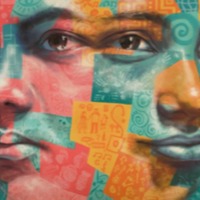
On the way, Musa did not beat me, but he gave me hardly any food. Musa kept me for himself. He called me ‘Sudan.’ He took me to a camp for soldiers near Daein. Musa had a home in Daein town, but he never took me there. I had to stay at his home at the army camp. It was a place where soldiers marched and learned how to prepare their guns and to shoot.
There were both Arabs and Dinkas there. I had to do housework for Musa. I could not leave the camp. Many times each day, he would say that he would shoot me or cut my throat if I tried to escape. I was very sad, and couldn’t help crying. He would beat me when he caught me crying. Musa used me as a concubine. I am now about five months pregnant. Musa let me go away with the trader. I think he did this because I was so sad and tearful that he didn’t want me any more. I am a Christian and used to go to church at Nyamlell. One of the catechists named Mario is my friend.
Narrative as told to Christian Solidarity International, January 1999, in Northern Bahr El Ghazal, Sudan.









